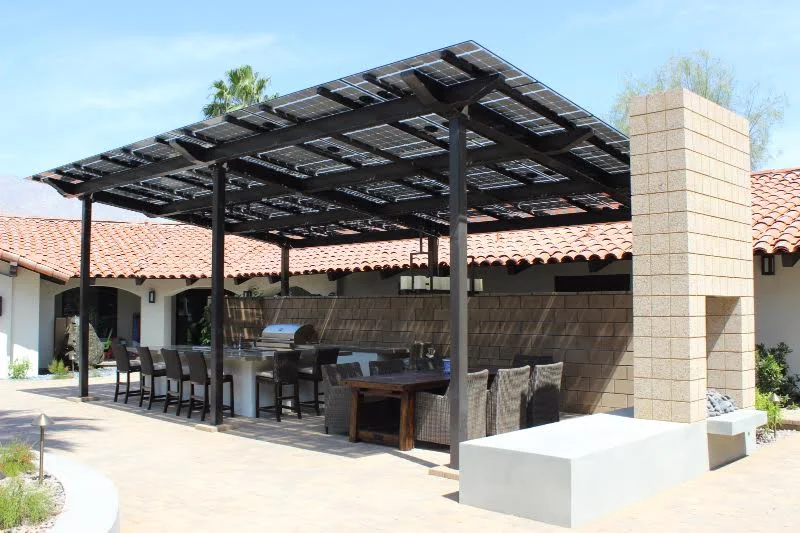It's hard to find a reason not to go Solar these days...
especially if you live in the sunshine state!
Economic incentives
Drastically reduce or even eliminate your electric bills
Solar is an incredibly effective home efficiency upgrade. Whether you’re a homeowner, business, or nonprofit, electricity costs can make up a large portion of your monthly expenses. With a solar panel system, you’ll generate free power for your system’s entire 25+ year lifecycle. Even if you don’t produce 100 percent of the energy you consume, solar will reduce your utility bills and you’ll still save a lot of money.
Dynamic Outdoor Spaces designs and installs solar shade structures.
Earn a great return on your investment
Solar panels aren’t an expense – they’re one of the best ways to invest, with returns rivaling those of more traditional investments like stocks and bonds. Thanks to substantial electricity bill savings, the average American homeowner pays off their solar panel system in seven to eight years and sees an ROI of 20 percent or more.
Dynamic Outdoor Spaces designs solar shade structure that provide beautiful refracted light patterns.
Increase your property value
Multiple studies have found that homes equipped with solar energy systems have higher property values and sell more quickly than non-solar homes. Appraisers are increasingly taking solar installations into consideration as they value homes at the time of a sale, and as homebuyers become more educated about solar, demand for properties equipped with solar panel systems will continue to grow.
Dynamic Outdoor Spaces installs Solar Integrated Pavilions.
Environmental Incentives
Protect the environment
Solar is a great way to reduce your carbon footprint. Buildings are responsible for 38 percent of all carbon emissions in the U.S., and going solar can significantly decrease that number. A typical residential solar panel system will eliminate three to four tons of carbon emissions each year—the equivalent of planting over 100 trees annually.
A Solar roof provides renewable energy!
Solar reduces the need for finite resources
Solar energy is renewable. The sun is the world's most abundant energy source, producing an amazing 173,000 terawatts of solar energy every second. That's more than 10,000 times the world's total combined energy use, and it can be used over and over again. In contrast, fossil fuels are non-renewable and while they may seem in abundance today, there will come a time when the world will run out. Or, the cost of finding and extracting these sources will become too expensive. By that time, the resulting damage to our financial infrastructure and environment may be unrepairable. Switching to solar today is the best way to hedge against the reality of finite fuel resources.
Building Integrated Solar Installation for a hotel.
Solar reduces water pollution
While all manufacturing processes require some water, solar photovoltaic cells don't need water to generate electricity. This is one of the biggest, yet least talked about environmental benefits of solar. Traditional biomass and geothermal power plants, such as natural gas and coal-fired facilities, require massive amounts of water to facilitate their vital cooling requirements. With solar energy there is no pollution of local water resources, nor does their operation (which again requires NO water) strain local supplies through the competition with agriculture, drinking systems, and other vital water needs.








